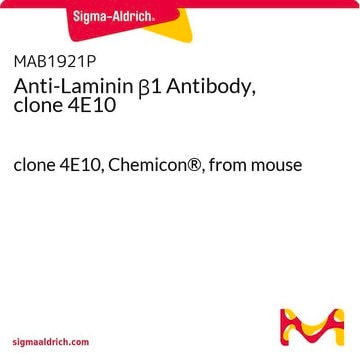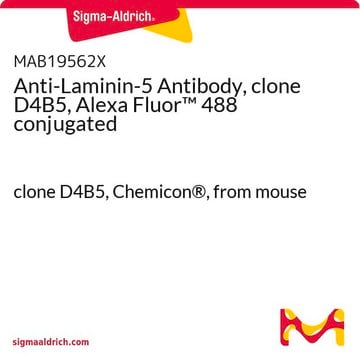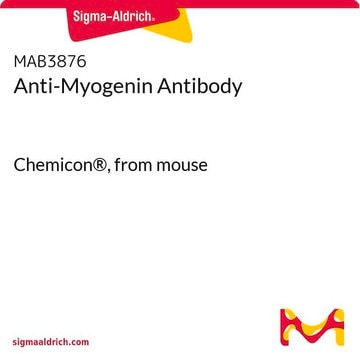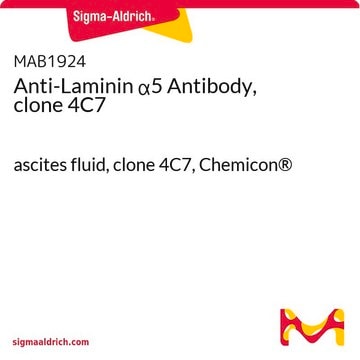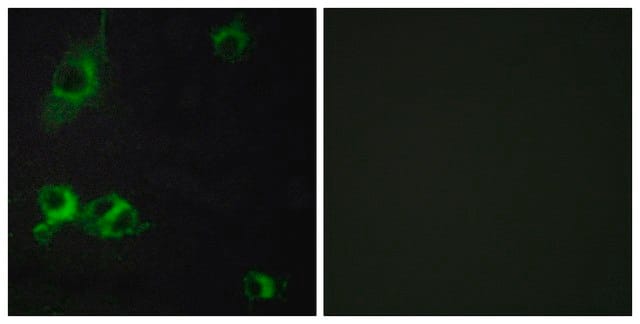MAB1905-I
Anti-Laminin α1/β1 Antibody, clone AL-4
clone AL-4, from rat
Synonym(s):
Laminin subunit beta-1, Laminin subunit alpha-1, Laminin α1/β1, Serine/threonine-protein kinase PLK4
About This Item
Recommended Products
biological source
rat
Quality Level
antibody form
purified immunoglobulin
antibody product type
primary antibodies
clone
AL-4, monoclonal
species reactivity
mouse
technique(s)
immunocytochemistry: suitable
western blot: suitable
isotype
IgG2aκ
NCBI accession no.
UniProt accession no.
shipped in
wet ice
target post-translational modification
unmodified
Gene Information
mouse ... Lama1(16772)
General description
Specificity
Immunogen
Application
Cell Structure
ECM Proteins
Quality
Western Blot Analysis: 0.25 µg/mL of this antibody detected Laminin α1/β1 in 10 µg of Laminin purified protein.
Target description
Linkage
Physical form
Storage and Stability
Analysis Note
Laminin purified protein
Other Notes
Disclaimer
Not finding the right product?
Try our Product Selector Tool.
Storage Class Code
12 - Non Combustible Liquids
WGK
WGK 1
Flash Point(F)
Not applicable
Flash Point(C)
Not applicable
Certificates of Analysis (COA)
Search for Certificates of Analysis (COA) by entering the products Lot/Batch Number. Lot and Batch Numbers can be found on a product’s label following the words ‘Lot’ or ‘Batch’.
Already Own This Product?
Find documentation for the products that you have recently purchased in the Document Library.
Our team of scientists has experience in all areas of research including Life Science, Material Science, Chemical Synthesis, Chromatography, Analytical and many others.
Contact Technical Service

